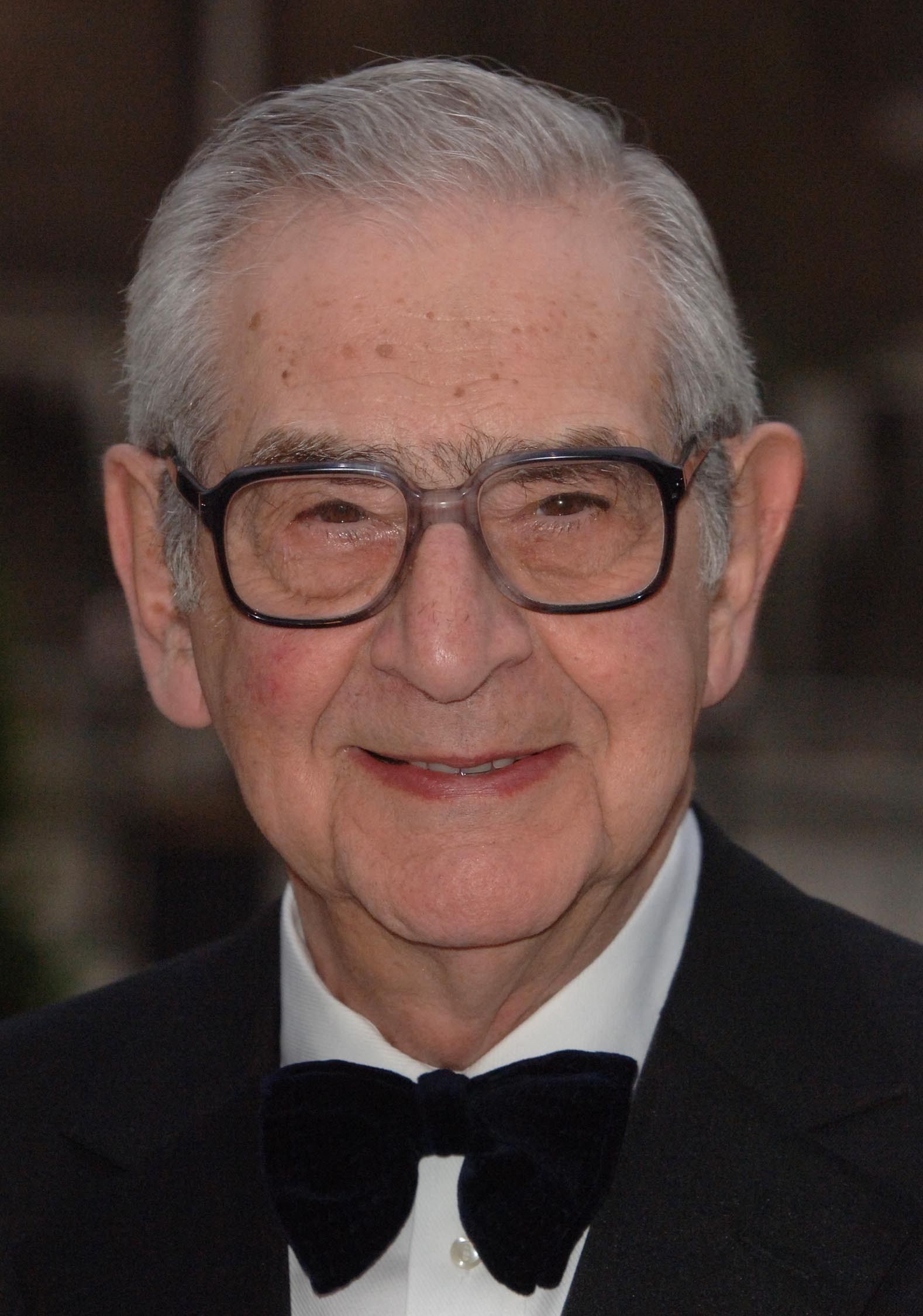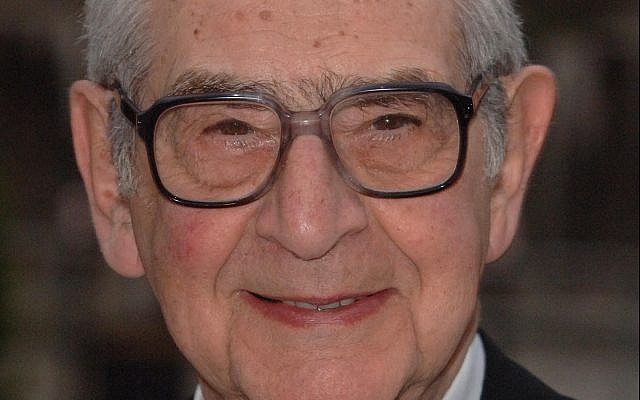‘It’ll Be Alright On The Night’ host Denis Norden dies aged 96
British Jewish comedian passes away weeks after the death of his wife Avril, as tributes pour in for the entertainer
TV presenter and comedy writer Denis Norden has died aged 96, his family said.
The It’ll Be Alright On The Night host died on Wednesday morning after spending “many weeks” at the Royal Free Hospital in north London, a statement from his children, Nick and Maggie Norden, issued to the Press Association said.
It added: “We’d like to say a huge thank you to all the dedicated staff and doctors who have looked after him – with much devotion.
“A wonderful dad, a loving grandfather and great great-grandfather – he gave his laughter-mongering to so many.
“He will be in our hearts forever.”
Norden presented the ITV bloopers show for 29 years until his retirement in 2006.
After stepping down he gave a lot of attention to raising awareness of macular disease, a degenerative eye condition from which he suffered, and became a patron of the Macular Society.
Born in Hackney, east London, in February 1922, he trained as a manager for the Hyams brothers, owners of impressive London picture palaces.

He served in the RAF in the Second World War with such other future famous names as Eric Sykes and Bill Fraser, and wrote shows to entertain the troops – and get off guard duty.
Norden met future writing partner Frank Muir in 1947 and they created Take It From Here, the radio hit broadcast by the BBC between 1948 and 1960 starring Jimmy Edwards, Joy Nichols, June Whitfield and Dick Bentley.
His small screen career kicked off in 1951 with Here’s Television, the BBC sketch show starring Sidney James and Ian Carmichael.
Norden and Muir amicably parted ways in 1964 after a series of successes and he wrote material for The Frost Report, hosted by the late Sir David Frost.
He became established as a television presenter in the 1970s, hosting Looks Familiar, the nostalgic chat show, before It’ll be Alright On The Night hit the airwaves in 1977.
Its popularity saw ITV commission spin-off Denis Norden’s Laughter File, with both running until his retirement.
After stepping down from presenting It’ll Be Alright On The Night he spent time raising awareness of macular disease, a degenerative eye condition he suffered.
He joined the Macular Society as a member in 2004 and became patron in 2009.
In 2015 he spoke about how he “accidentally” visited the the Bergen-Belsen concentration camp.
Norden and Sykes went to the liberated camp in northern Germany to find lighting for a show they were putting on.
They had no idea what the camp had been used for.
Norden told a BBC Radio 4 programme: “We were doing a show at this particular RAF camp nearby, we were short of lighting equipment, and somebody said, ‘There is a kind of camp near us, which had all sorts of lights for illuminating it at night, you can take those’, so we took this truck along. We didn’t know what to expect, we had not heard a word about it.”
They went back to their own camp and gathered as much food as they could.
“We told everyone you’ve never seen anything like it, and everybody in the unit contributed whatever spare food they had, or had been sent from home, and we took it along there.
“I’ve always had this awful feeling that it was wrong for us to do that, people so emaciated to have this rich food poured upon them, what it did to them.”
The camp had been used to house prisoners of war, exchange prisoners and finally Jewish evacuees from concentration camps across Europe.
While it did not contain any gas chambers, about 70,000 prisoners died mainly through starvation and disease.
Norden said he also fed the German children.
“What was notable, was that the Germans themselves, wherever we were, were not receiving food at all really, and they were becoming very emaciated as well,” he said.
“The little German kids would hang around when you’re eating your food, eating your own rations, just looking at you, so everybody gave food to these kids.
“After seeing the camp, you could in theory hold it against the Germans, but you couldn’t hold it against these German kids.”
LISTEN to this week’s episode of the Jewish Views podcast:

Thank you for helping to make Jewish News the leading source of news and opinion for the UK Jewish community. Today we're asking for your invaluable help to continue putting our community first in everything we do.
For as little as £5 a month you can help sustain the vital work we do in celebrating and standing up for Jewish life in Britain.
Jewish News holds our community together and keeps us connected. Like a synagogue, it’s where people turn to feel part of something bigger. It also proudly shows the rest of Britain the vibrancy and rich culture of modern Jewish life.
You can make a quick and easy one-off or monthly contribution of £5, £10, £20 or any other sum you’re comfortable with.
100% of your donation will help us continue celebrating our community, in all its dynamic diversity...
Engaging
Being a community platform means so much more than producing a newspaper and website. One of our proudest roles is media partnering with our invaluable charities to amplify the outstanding work they do to help us all.
Celebrating
There’s no shortage of oys in the world but Jewish News takes every opportunity to celebrate the joys too, through projects like Night of Heroes, 40 Under 40 and other compelling countdowns that make the community kvell with pride.
Pioneering
In the first collaboration between media outlets from different faiths, Jewish News worked with British Muslim TV and Church Times to produce a list of young activists leading the way on interfaith understanding.
Campaigning
Royal Mail issued a stamp honouring Holocaust hero Sir Nicholas Winton after a Jewish News campaign attracted more than 100,000 backers. Jewish Newsalso produces special editions of the paper highlighting pressing issues including mental health and Holocaust remembrance.
Easy access
In an age when news is readily accessible, Jewish News provides high-quality content free online and offline, removing any financial barriers to connecting people.
Voice of our community to wider society
The Jewish News team regularly appears on TV, radio and on the pages of the national press to comment on stories about the Jewish community. Easy access to the paper on the streets of London also means Jewish News provides an invaluable window into the community for the country at large.
We hope you agree all this is worth preserving.






















